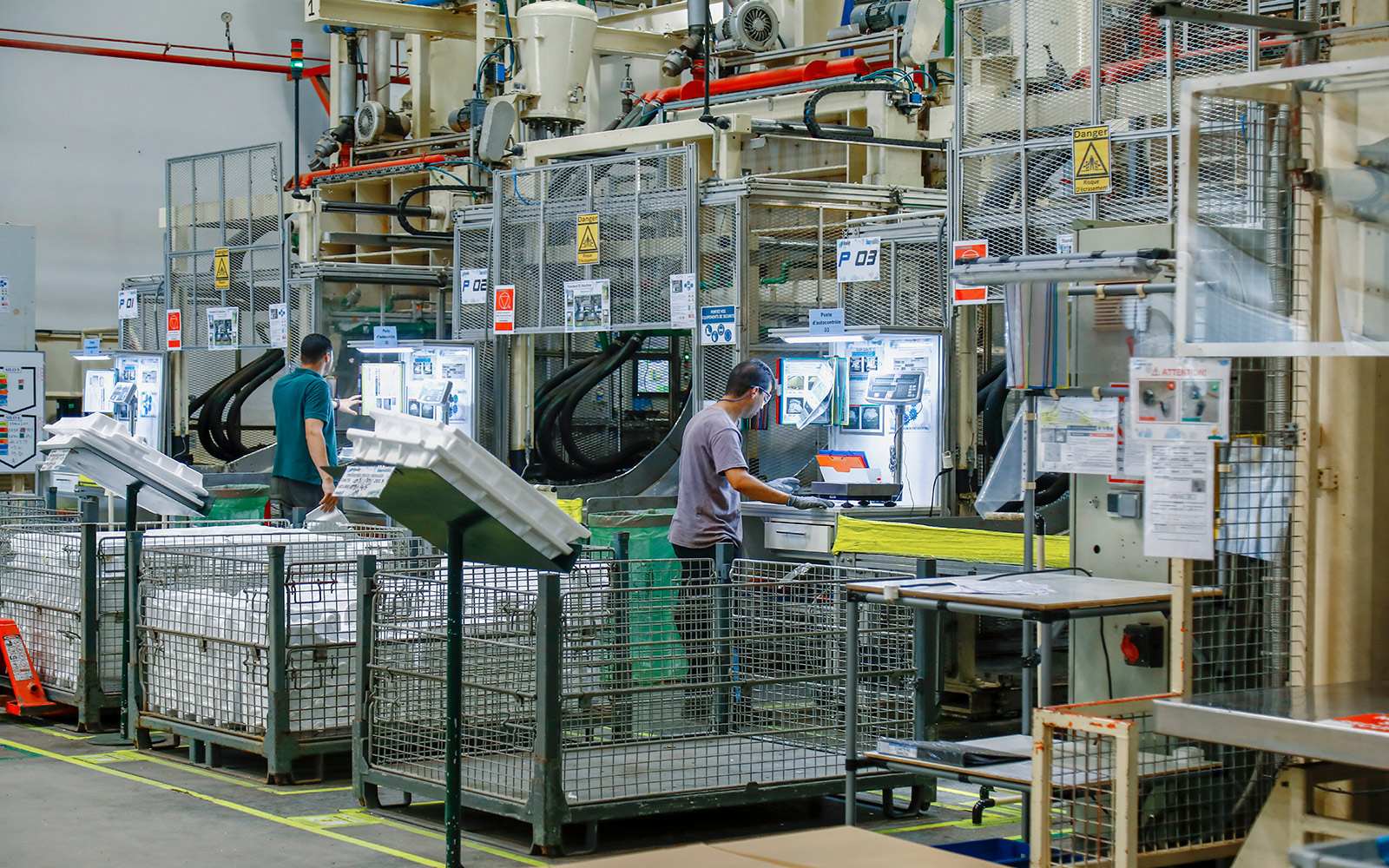The fight against climate change requires global engagement. Of course, the automotive industry plays a leading role in this issue. Government regulations are forcing a deep transformation of industrial processes, and according to many analysts, this, instead of a transition, signifies a true revolution for the automotive sector. Electric vehicles or vehicles largely built out of plastics were considered a rarity just a few years ago, but now, they are a reality, and at the same time, a priority for carmakers determining how competitive they are on the market.
Cars with combustion engines will slowly begin to disappear from our streets. This is no longer an abstract phenomenon but a perceptible trend in the action strategies of government authorities around the world. Certain countries have already established timelines of action, which the main players in automotive are signing up to. This is not only because of the obligation imposed by the law. There are brands announcing plans with goals related to sustainable development that are far more ambitious than those set by governments.
The number of cities restricting or prohibiting traffic of combustion vehicles is growing. Countries such as Norway and France have already announced end dates for production of cars equipped with Diesel and gasoline engines. Even the greatest economic power in the world, China, is implementing environmental protection regulations that are even more restrictive than European regulations as well as a policy promoting electric vehicles and vehicles powered by alternative fuels.
Manufacturers engaged in sustainable development
The study, Sustainability as a Strategy in the Chinese Automotive Industry: Managing Legitimacy Demands when Expanding to the EU, conducted by scientists Cathleen Wong and Hunter Fowler from Florida Gulf Coast University indicates that Chinese engagement is forcing leading car manufacturers to announce plans consistent with the assumptions of the fight against climate change. One example of this is Volvo, which is proposing that its Asian factories manufacture solely electric cars starting from this year. Another example is BYD, which assures that all of its vehicles will be hybrid or electric before 2030.
As we can read in an article published during the World Economic Forum, What the car industry has done to help fight climate change – and what it needs to do next, successive brands have announced decarbonization plans, including Porsche, which has committed to electrify over half of the fleet it offers within the next five years, as well as Volkswagen, which is planning to reduce emissions in its new vehicles by 30% and eliminate them entirely by 2050.
Of course, to carry out such a transformation, carmakers must collaborate closely with suppliers of automotive components such as Knauf Industries Automotive. Innovations, research on new materials, development of new technologies and broad applications of solutions offered by other manufacturers, such as expanded polypropylene (EPP), which is already present in many vehicle components, are an indispensable part of sustainable development.
Lower pollution is linked to vehicle weight reduction. Thermoplastics make it possible to develop lighter constructions and to mold components ensuring both safety and an attractive appearance. Reducing a vehicle’s weight by 10% reduces fuel consumption by 6%. In the case of electric cars, this extends battery life.
In the Conference of Parties (COP25) on climate change, which was recently held in Madrid, many companies from the automotive sector were present, including the Spanish Association of Automotive Suppliers (SERNAUTO) – which Knauf Industries Automotive is part of. Suppliers stressed their engagement in improving the efficiency of new vehicles, reducing the pollution generated by vehicles, improving safety and communication between vehicles.
Achievements of the automotive industry in the field of environmental protection

The executive director of the British Society of Motor Manufacturers and Traders (SMMT), Mike Hawes, cites an article titled Automotive sector committed to tackling climate change, indicating automotive’s achievements in the pursuit of sustainable development. Mike Hawes starts with the fact that, currently, it would take fifty modern cars to generate the same level of emissions produced by a car manufactured in 1970. He also recalls significant accomplishments, such as the introduction of catalytic converters in 1993; or the creation in 2011 of solid particle filters for Diesel engines, catching 99% of soot particles; as well as the application in 2015 of selective catalytic reduction systems, which convert nitrogen oxides (NOx) into nitrogen and water.
Hawes reminds us that substantial work has already been done to reduce carbon dioxide emissions, and in comparison to the period twenty years prior to now, CO2 emissions in currently manufactured mid-class cars have been reduced by 31%. All this thanks to innovations like lower capacity engines, turbo-compressors, the application of lighter materials (such as EPP and EPS) as well as stop-start technologies, which helped improve fuel efficiency.